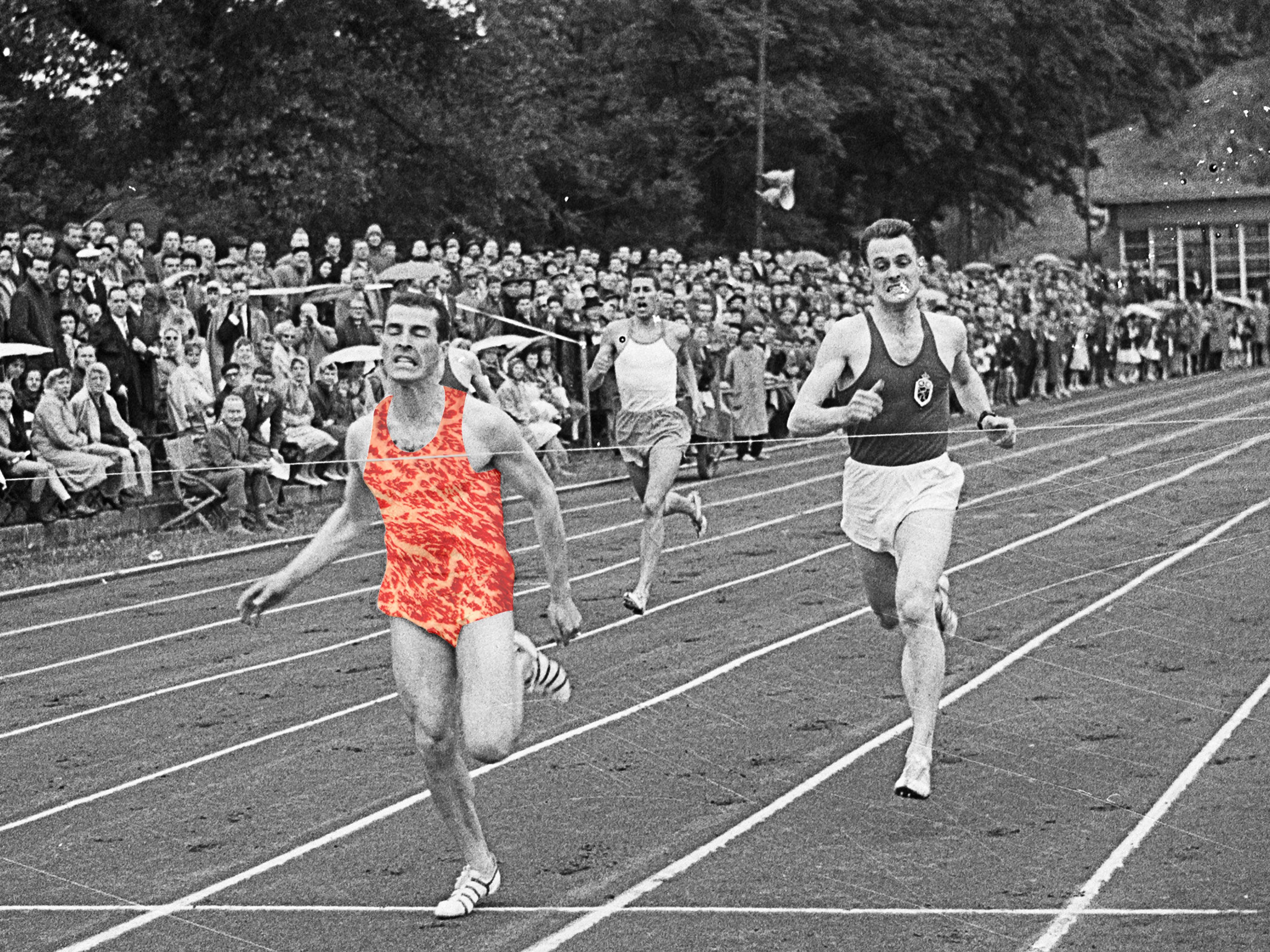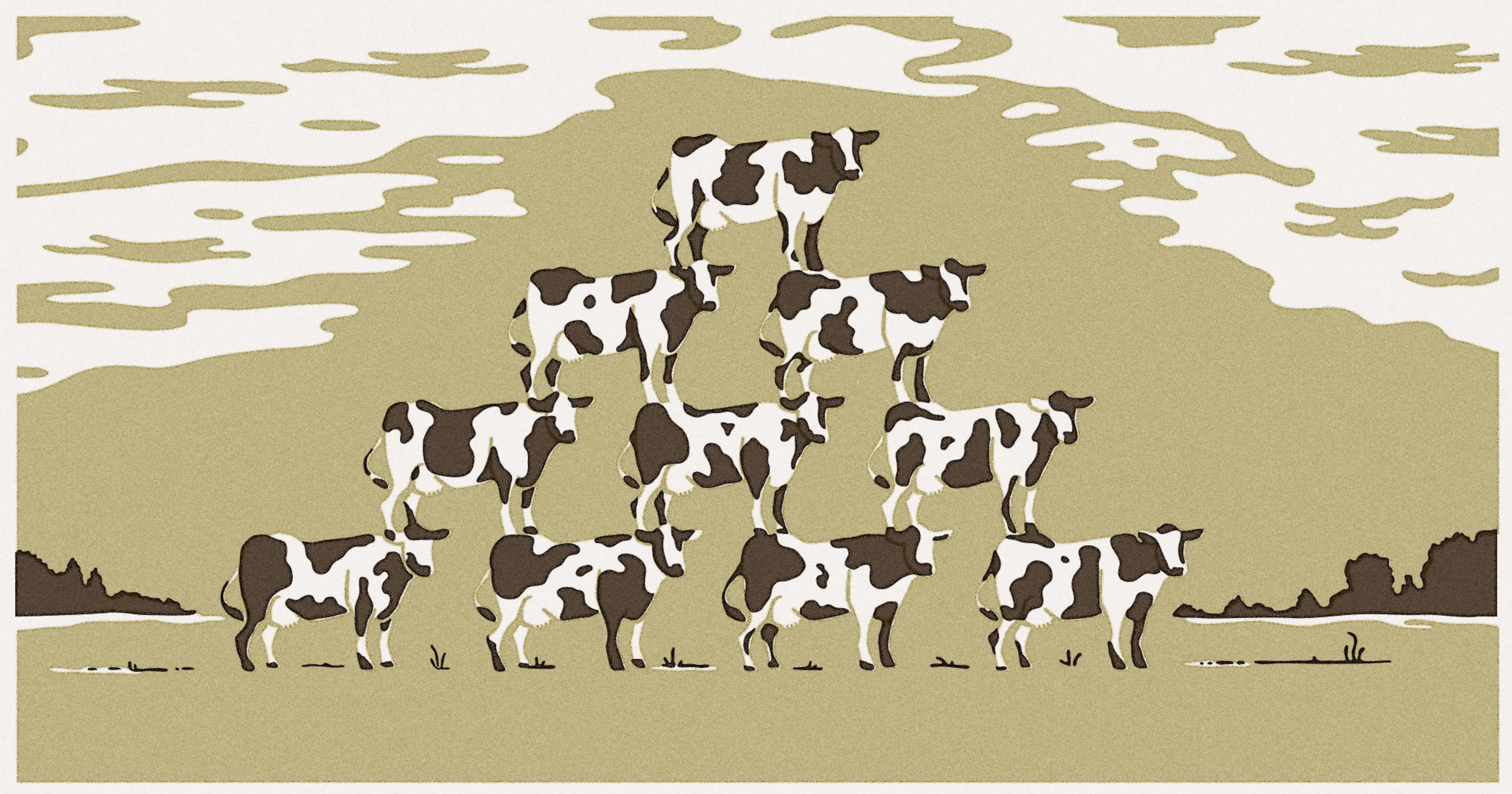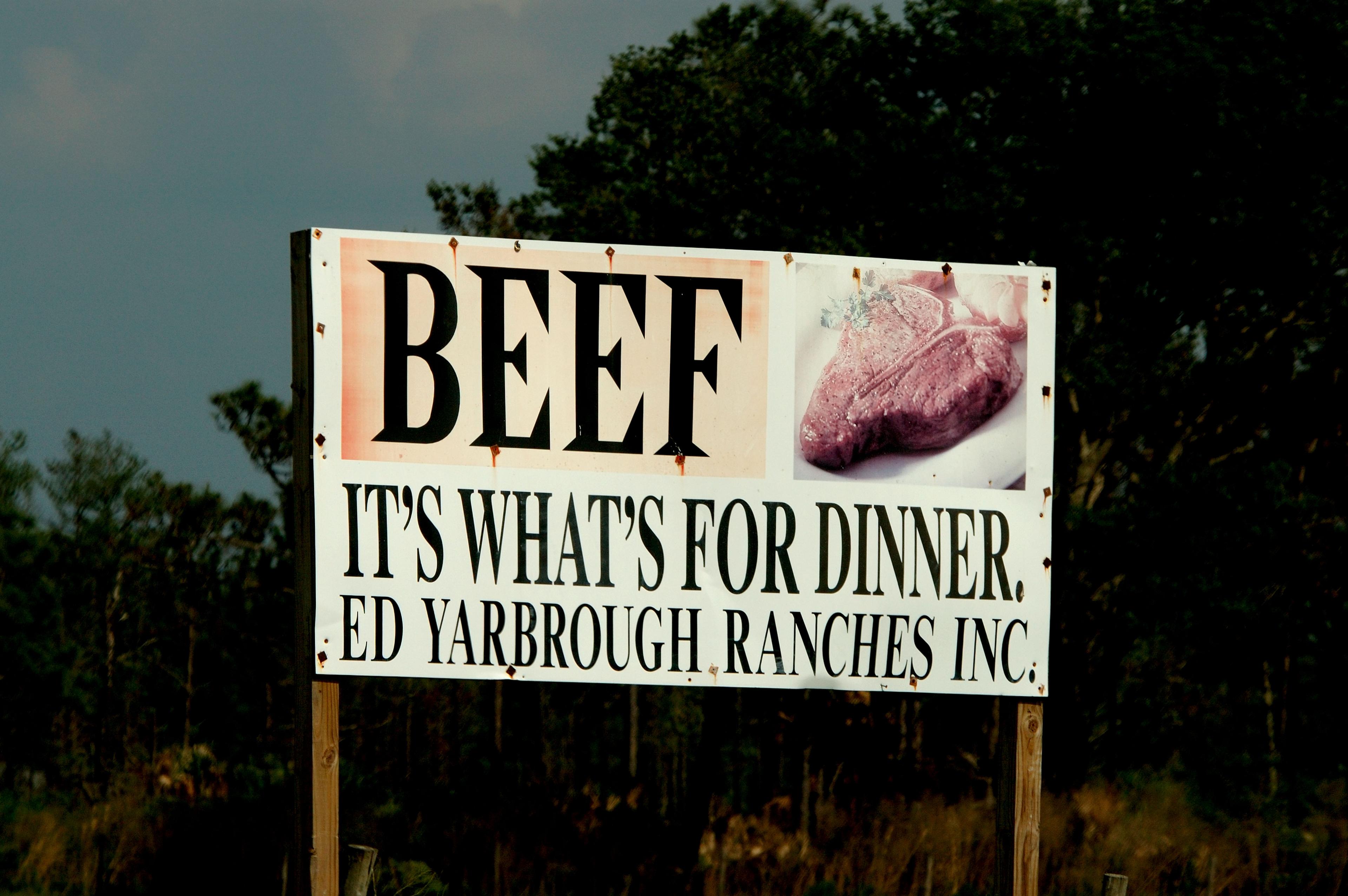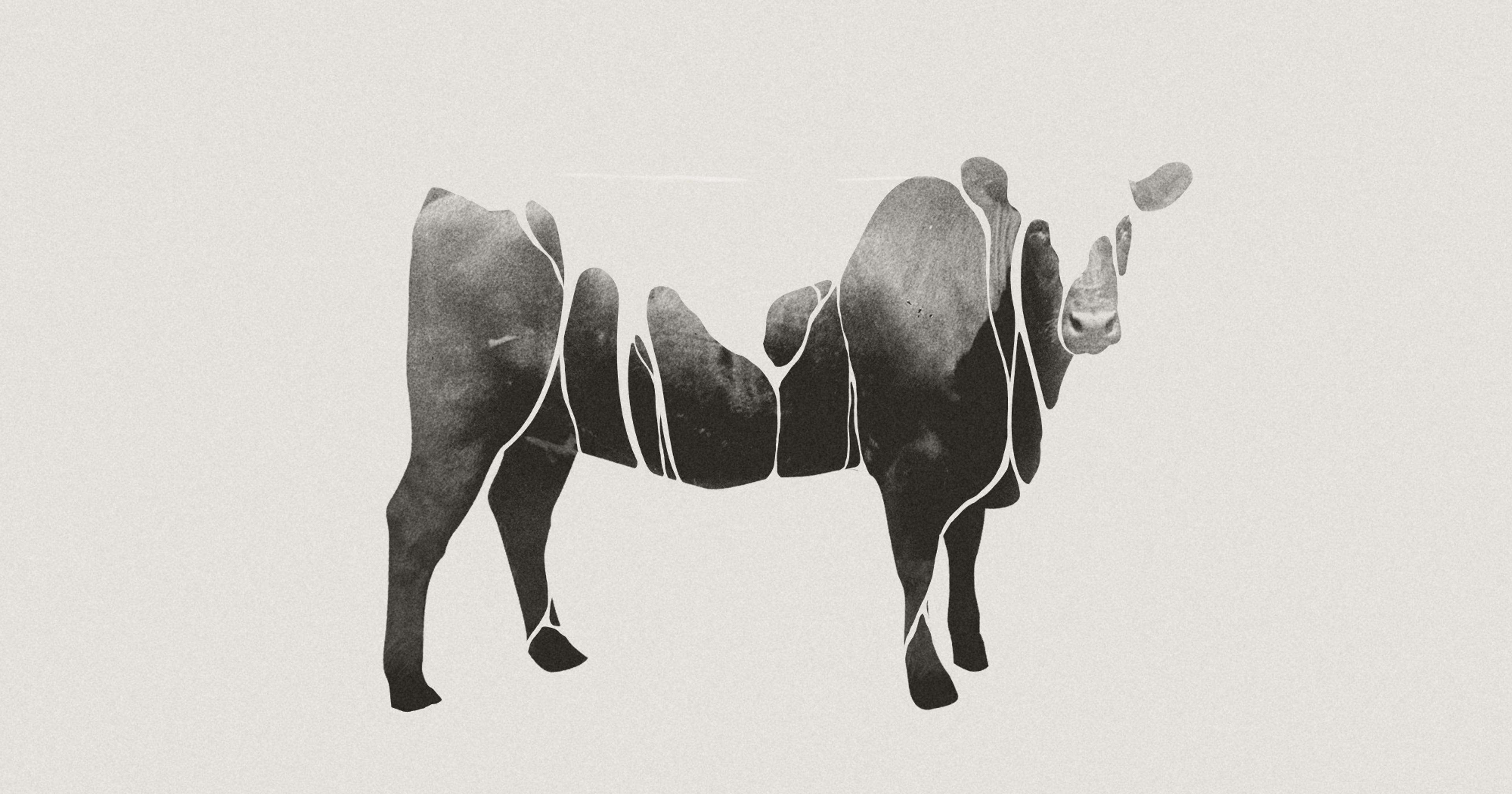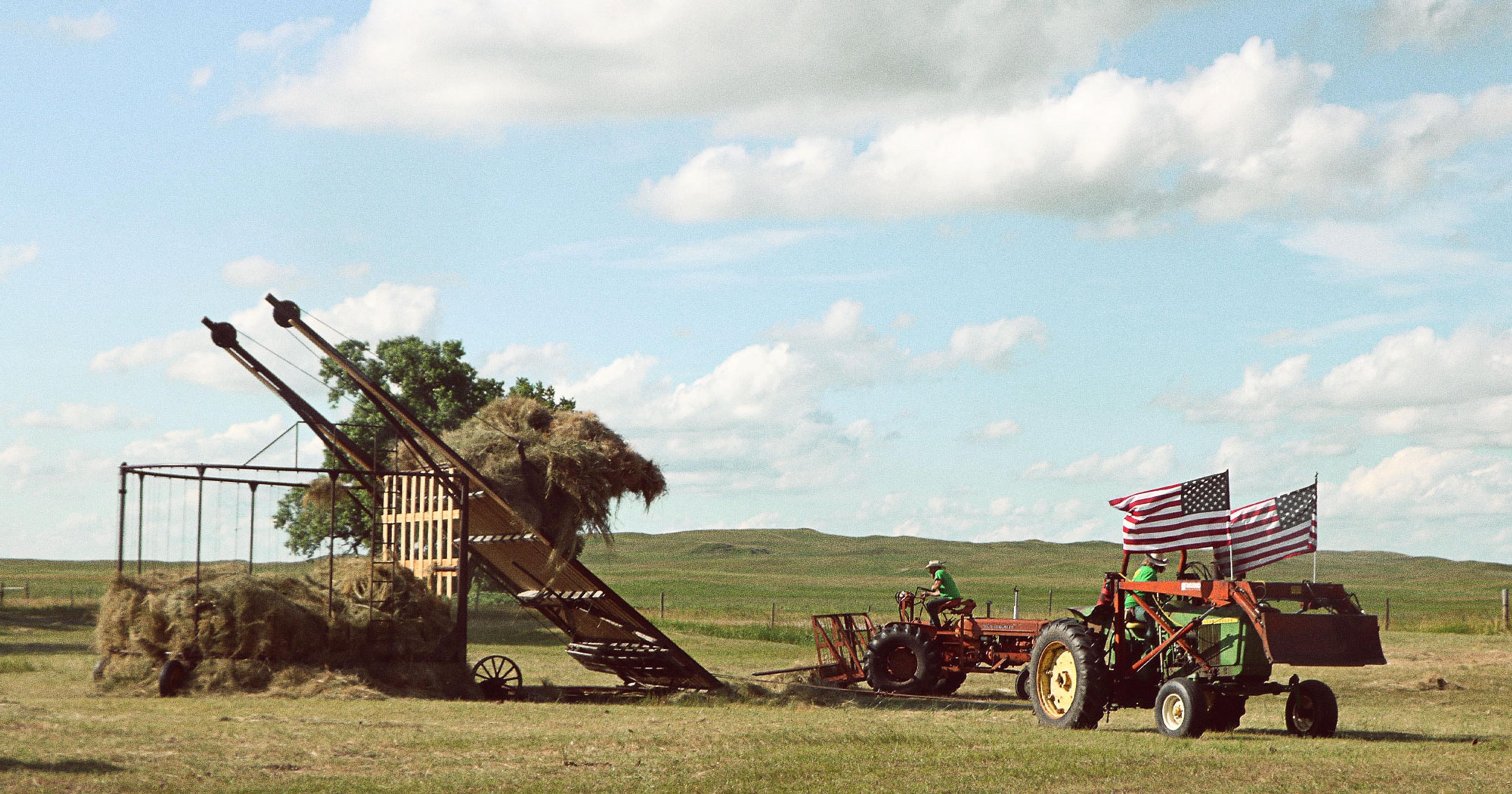Team Beef is a nationwide consortium of running teams sponsored by a hefty infusion of beef checkoff dollars. What’s in it for the runners?
Danielle Southern is training for her first marathon; each week, her practice runs are getting progressively longer. In November, she will finally put her hard work to the test on the genteel, oak-lined streets of Savannah, Georgia, for a race sponsored by the national dairy checkoff program. Southern will stand out in a candy red singlet, loudly emblazoned with the logo “Team Beef.”
Running a marathon organized by the dairy industry, on a team funded by the beef industry — you’d be excused for thinking Southern is an ag lobbyist of some kind. The truth is more benign: She joined Team Beef back in 2017 when she noticed her brother-in-law sporting some of their gear. He told her that all she had to do was wear the jersey, too, and all of her race entry fees would be reimbursed.
“I’m like, ‘That’s really cool,’” Southern said. “I can’t say no to free races.”
Team Beef was created in 2009 by the national beef checkoff program, the marketing and research group that requires beef producers and importers to pay a $1-per-head on animals they market. The stated goal is to “promote beef’s health benefits and showcase people leading active and healthy lifestyles fueled by lean beef,” according to the Cattlemen’s Beef Board website. There are more than 20 teams across the country, each independently run by the respective state’s beef board. Team Beef Texas has about 1,200 members and is so popular there’s currently a waitlist to join; Team Beef Tennessee and Arkansas are also at capacity.
What exactly is the point of these teams, though? They celebrate participation, not podium finishes, and don’t provide training plans or coaching. The few hundred bucks for race fees that members are annually allotted can’t go all that far for athletes who race often, and longer races like marathons tend to be pricier. Is it simply a way for beefheads to show allegiance to their favorite protein?
“Team Beef is a collection of runners and athletes … that believe in beef as a powerful protein to fuel their training and their everyday lives,” said Kentucky rancher Joe Lowe, in a promotional video that includes him cheersing his wife Cassie with beef jerky.
But is marketing on the backs of these runners a successful initiative, and if so, in what sense? How exactly do beef and athletics go together? As it turns out, Team Beef is just one part of a multi-pronged effort to associate beef with health in the popular mindset.
“There’s a big difference between a brand showing up at a race with a brochure and a peer running or riding beside you with a Team Beef shirt,” said Scott Stebner, director of communications at the Kansas Beef Council on the Beef Board website. “Research shows time and time again that messaging from peers — people within your social circles and sphere of influence — is more credible and relatable.”
“There’s a big difference between a brand showing up at a race with a brochure and a peer running or riding beside you with a Team Beef shirt.”
In a February report titled “Aligning with Athletics,” the Beef Board quotes a statistic from a 2022 Nielsen Insights report: 81 percent of consumers trust branded sponsorships at sporting events. Running with that knowledge, the Northeast Beef Promotion Initiative (NEBPI), a beef checkoff subcontractor, has been busy trying to win the hearts and appetites of athletes and fans through on-site and in-game fan interaction, digital ads, social media content, and student-athlete engagement throughout the athletic season.
“The goal of these partnerships is to drive a greater understanding of beef by aligning with and capitalizing on the loyalty fans have for their sports teams,” said Kaitlyn Swope, NEBPI’s director of consumer affairs.
In 2019, a deal was struck with Penn State: Throughout the university’s football season, fans got steak samples at a “beef booth,” were encouraged to share beef content on social media for the chance to win a “beef tailgate prize pack,” and the Penn State Coaches’ weekly radio show featured an ongoing promotion heralding beef’s praises. A partnership with Seton Hall University in New Jersey led to the naming of beef as the official “Preferred Protein of the Seton Hall Pirates,” and the NEBPI has forged partnerships with high school athletic departments, too.
When Lance Pekus, known as the Cowboy Ninja, made his debut competing on NBC’s American Ninja Warrior in 2009, beef was a major talking point for the somersaulting, super-strong Idaho rancher. “Some of my biggest supporters and sponsors are the beef community, the Idaho Beef Council,” he told the Idaho Statesman in 2017. “A lot of people I compete with are vegans and vegetarians. I feel like there’s a lot of negative connotation to the beef and beef industry.”
Like anyone who wishes to join Team Beef, Southern had to go through a requisite “beef education training” that prepares athlete-advocates to “answer tough questions about beef and raising cattle,” from the slaughter process to animal care and a glossed-over version of the industry’s environmental impact. For just $300 per head, the Beef Checkoff is able to build an army of athletes to evangelize about consuming carne.
“So they’re very sneaky. They said that their athletes had improved performance when they ate beef the night before a race. Well, what else was eaten with that meal?“
“At the time, I was studying to become a dietitian,” Southern said, “and so I was going to be wearing a jersey for a food product, it was something that I wanted to feel strongly about. … [I] saw that their messages align with my approach to nutrition.”
The Team Beef approach to nutrition heavily emphasizes how essential nutrients, including protein, iron, zinc, and B vitamins are found in beef, which along with exercise, can “help build muscle and mental strength, according to their website. Taking a swipe at competing proteins, Joe Lowe said, “The biggest mistake people make in not incorporating lean beef in their diet is saying ‘Oh well I’m eating pork or I’m eating poultry,’ … and they’re not realizing those other vitamins and minerals that beef’s providing.“
And while all those positive nutrition values may be true, beef’s place on an athlete’s plate can be a much more complicated subject.
“[R]ed meat is indisputably an excellent source of high quality protein,” wrote registered dietitian Nancy Clark on the United States Tennis Association website. “It is rich in iron and zinc, two minerals important for optimal health and athletic performance.” That said, she acknowledges the risks of a diet high in red meat. Choosing whether to eat or forgo beef is not a simple decision, “but rather a weighing of nutrition facts, ethical concerns, personal values, and dedication to making appropriate food choices,” Clark said.
Then there’s heart health to consider. Despite small portions of red meat fitting within the American Heart Association’s recommended daily serving, that only applies to lean meats like London broil, extra-lean hamburgers, and top-round roast beef. The fat in meats like greasy cheeseburgers, beef sausage, and juicy steaks, make them poor choices for heart health — particularly for athletes, most of whom are allotted just 45 to 70 grams of fat per day, according to Clark.
“I do believe that if someone enjoys beef that they should include it in their diet and I think looking for the leaner meats is probably more beneficial,” said registered dietician Amy Stephens, a certified specialist in sports nutrition who works with NYU’s track and field team as well as Olympic-level athletes. “Endurance athletes need lots of calories, so it’s appropriate to include [lean beef] in a diet, or as part of a diet.”
“Casually looking over the [team] list, I can only see like, maybe three or four actual producers. The rest are just consumers.”
But while Stephens approves of the inclusion of beef — even daily — in the diets of her athletes, there are asterisks. The amount and the quality of the meat matters, as well as what else is on your plate. At the end of the day, Team Beef’s “goal is to get you to buy more beef,” Stephens said. “So they’re very sneaky. They said that their athletes had improved performance when they ate beef the night before a race. Well, what else was eaten with that meal? They won’t even say it.”
Stephens recommends that a runner following the Team Beef’s nutrition guidelines might want to rotate their protein sources. “The thing with beef is it contains a lot of saturated fat,” she said, “which has been linked with heart disease, which is a very common issue in our country. And eating foods with mono-unsaturated fats like avocado, olive oil, nuts, and seeds — also provides that, but they also have a cardioprotective effect and they help with lowering cholesterol and still providing that energy.“
But again, outside of the race reimbursements, what are the benefits of running on a beef team? (That is, assuming you aren’t beef ranchers like the Lowes, literally promoting your own product.) Southern said her favorite thing about Team Beef Georgia is the sense of community she feels when she sees other beef athletes at races — despite there being no workouts, meetings, or other shared events. Allegedly the majority of Team Beef runners are just enthusiastically pro-beef athletes, but is that really it?
“They do not come from a ranching or farming background,” said Caitlin Jackson, Georgia Beef Checkoff program coordinator. “You know, just kind of casually looking over the list, I can only see like, maybe three or four actual producers. The rest are just consumers.”
Maybe it’s the fashion. There’s something so eye-catching about the enlarged, sizzling flame-grilled steaks adorning the front and back of the garment, and well, that’s kind of the whole point. When Nebraska Team Beef member Jacki Musgrave accomplished her goal of running a marathon in all 50 states this year, she told Nebraska Rural Radio Station that she always receives a lot of attention for her meat-forward racing singlet.
“It’s got this big steak on the back,” she said. “[Runners are] like ‘Where can I get one of those?’ I tell them to follow me to the steakhouse after the race.”
Some states require that team members go through an online, self-guided course called Masters of Beef Advocacy that trains them on how to speak knowledgeably about environmental sustainability, beef nutrition, animal welfare, and beef safety. Texas requires members to participate in at least one sponsored volunteer activity and complete a reorientation video every year to remain on the team. In Georgia, all new members must go through an initial training call, and there are three membership tiers, with higher rates of reimbursement (up to $200 at the highest tier) going to members who take on additional trainings like the “30-Day Protein Challenge.”
Most Team Beef athletes say that the interactions they have with people at races are overwhelmingly positive. But one reason the checkoff dollars are being spent on all these trainings is to counter negative perceptions of the industry. For instance, beef production plays a hefty role in the creation of greenhouse gasses, the industry continues to lean heavily on antibiotic use, and of course, vegans will not support meat consumption on any grounds. Do such detractors ever give Team Beef athletes an earful?
“Yeah, we do get some comments about ‘Hey, some people said this,’” said Scott Stebner, executive director of the Kansas Beef Council, “but fortunately, every single one of our active beef members has gone through a brief training course so they can learn how to talk about beef nutrition, and how to talk about beef sustainability and animal welfare as well.”
Despite the size and spectacle of Team Beef, it should be noted that there are other commodity-sponsored running teams, like the Illinois Corn Grower’s Association team and the dairy checkoff-sponsored Team Milk. When asked why he chose a beef team, specifically, Team Beef Georgia runner Dustin Monroe responded, “I am a huge fan of milk and will look into that team as well now that you have made me aware of them.”

